Present Participle
A participle is a form of a verb that is used together with another verb to form certain tenses.
Click Here for Step-by-Step Rules, Stories and Exercises to Practice All English Tenses
In the English language, there are mainly two types of participles: the present participle and the past participle.
In this lesson, we will focus on the uses of the present participle.
The present participle is a participle that ends in "ing." Both regular and irregular verbs have a present participle.
Jump to:
How to form the present participle
To form the present participle, add "ing" to the end of a
verb following these
spelling rules:1. most verbs => add "ing" to the end without changing the spelling
- look => looking
- sing => singing
- pick => picking
- rain => raining
- call => calling
- talk => talking
- work => working
- play => playing
- jump => jumping
- sleep => sleeping
- learn => learning
- worry => worrying
- shock => shocking
- type => typing
- end => ending
- cry => crying

2. verbs ending in silent "e" => drop the final "e" and add "ing"
- bake
=> baking
- bite
=> biting
- fake
=> faking
- drive
=> driving
- tape
=> taping
- wipe
=> wiping
- wake => waking
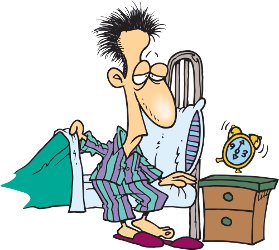
3. verbs with a short stressed vowel sound => double the final consonant and add "ing"
- swim
=> swimming
- plan
=> planning
- slam
=> slamming
- tip
=> tipping
- whip
= > whipping
- sit
=> sitting
- pat
=> patting
- run => running
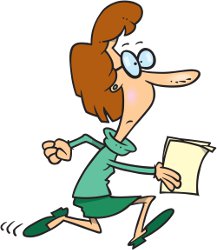
4. verbs ending in "ie" => change "ie" to "y" and add "ing"
- lie
=> lying
- die
=> dying
- tie => tying
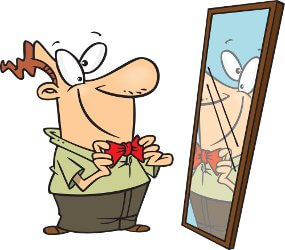
Present participle and progressive tenses
The present participle is commonly used together with the verb "to be" to form progressive tenses (also called continuous).
A) Past Progressive
Past Progressive is a form of the verb that shows the action
was in
progress at a certain point, or at some time period in the past.was/were + present participle
- I was
looking
for it yesterday.
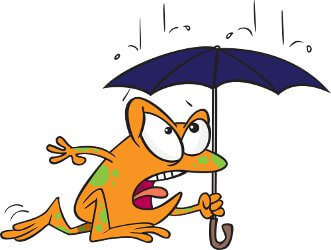
- He was
sleeping
all night.
- It was
raining this
morning.
- We were
eating
at 6 o'clock.
- Last week, they were visiting their family.
B) Present Progressive
Present Progressive is a form of the verb that shows the action is in progress in the present.am/is/are + present participle
- At this moment, I am
typing.
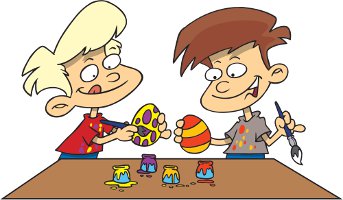
- Right now, she is
writing.
- It is snowing
outside today.
- We are
planning
our vacation now.
- Currently, they are painting the eggs.
C) Future Progressive
Future Progressive is a form of the verb that shows the action will be in progress at a certain point, or at some time period, in the future.will + be + present participle
- I will be swimming
tomorrow.
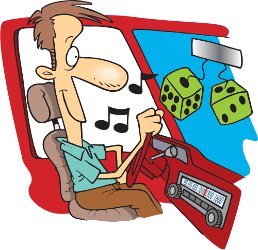
- He will be driving all
day.
- It will be working
soon.
- We will be signing the
papers in the morning.
- At 7 o'clock, they will be baking cookies.
D) Past Perfect Progressive
Past Perfect Progressive is a form of the verb that shows the action started in the past and continued up until another time or action in the past.had + been + present participle
- I had been reading
until you interrupted me.
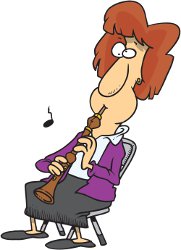
- She had been
practicing
the song for hours until she got it right.
- It had been squeaking until I fixed it.
- We had been planning to visit until the
accident.
- They were tired because they had been running all day.
E) Present Perfect Progressive
Present Perfect Progressive is a form of the verb that shows the action started in the past and continued up until the present.have/has been + present participle
- I have been working
here since 2010.

- He has been studying
for 2 hours.
- It has been snowing
since last night.
- We have been
talking for an
hour.
- They have been calling you for three days.
F) Future Perfect Progressive
Future Perfect Progressive is a form of the verb that shows
the action
will continue up until some time in the future.will + have + been + present participle
- By Saturday, I will
have been working
for 10 days straight.
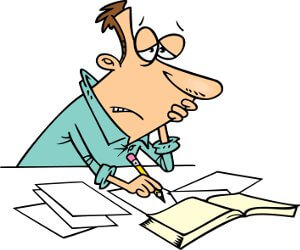
- At 9 o'clock, he
will have been studying
for 30 minutes.
- By the end of the day, it will have been raining for
2 days.
- In 2013, we will
have been living
here for 3 years.
- At noon, they will have been waiting for 2 hours.
Present participles as adjectives
Present participles can also be used as adjectives.- Mr. James is a boring
teacher.
- We saw the glowing
light.
- It was an amazing
show.
- The gifts are exciting!
- The shopping
mall is open late tonight.
- Nick told us a shocking
story.
- The meal was satisfying.
- That television show is so confusing.
- The princess dances with the charming
prince.
- They told us the disappointing
news.
- The ocean is a welcoming
sight!
- Sandy watched a terrifying movie last night.

Present participles and gerunds
A gerund is a noun made from a verb.To make a gerund, you add "ing" to a verb just like a present participle.
A present
participle can only act as a verb or adjective.
Gerunds act as nouns.
Gerunds act as nouns.
This was an overview of the present participles. Now that you understand, it is time to practice! Get our ESL Books.
Get Updates, Special Offers, and English Resources
Download your FREE GIFT (the first two chapters of
English Short Stories Book and Workbook)
as soon as you join!

By submitting your email, you consent to receiving updates and newsletters from us and to the sharing of your personal data with third parties for the purposes of sending you communications. We will not spam you. You can unsubscribe at any time. For more information, please see our privacy policy.








